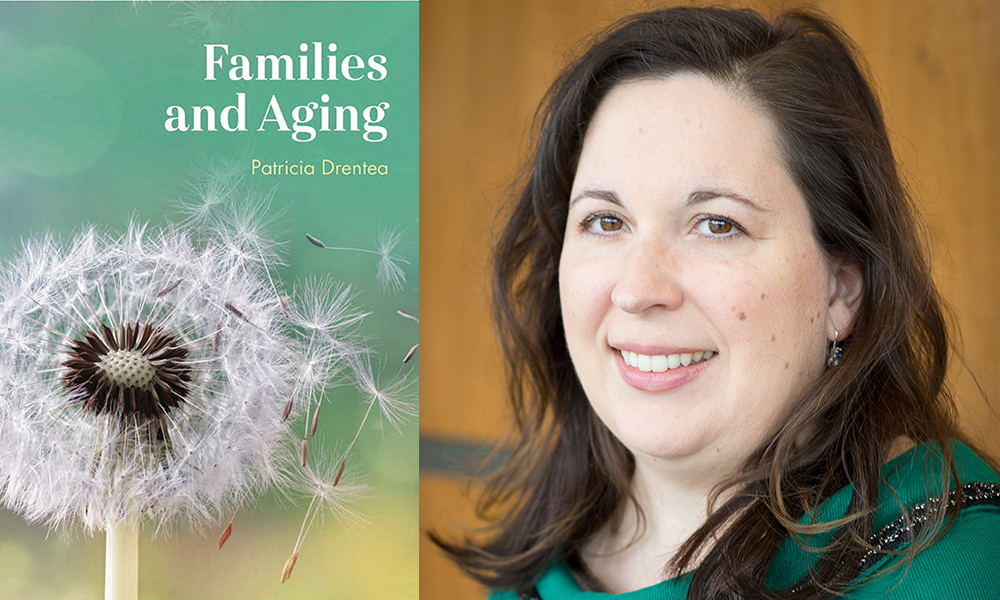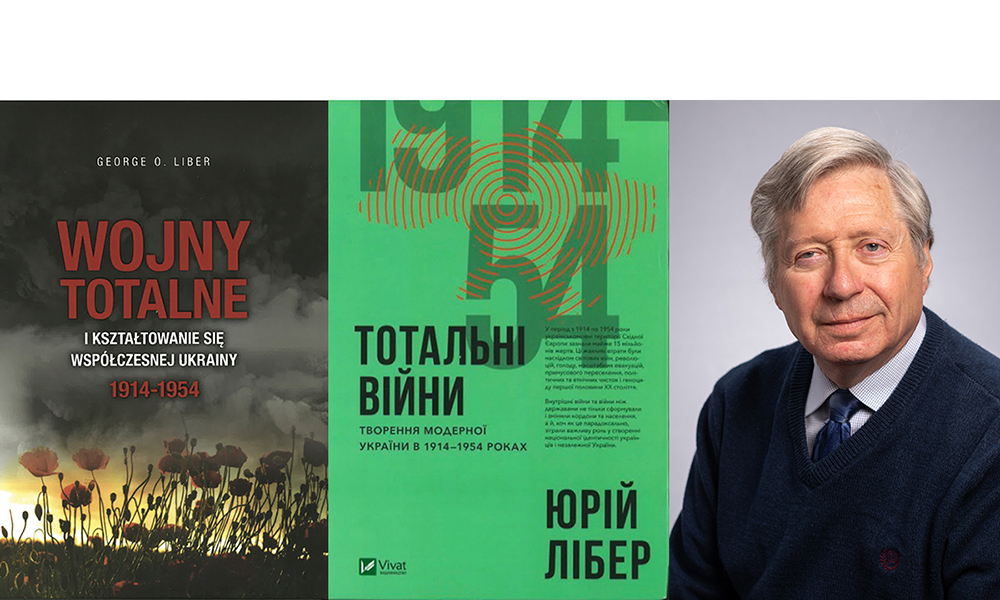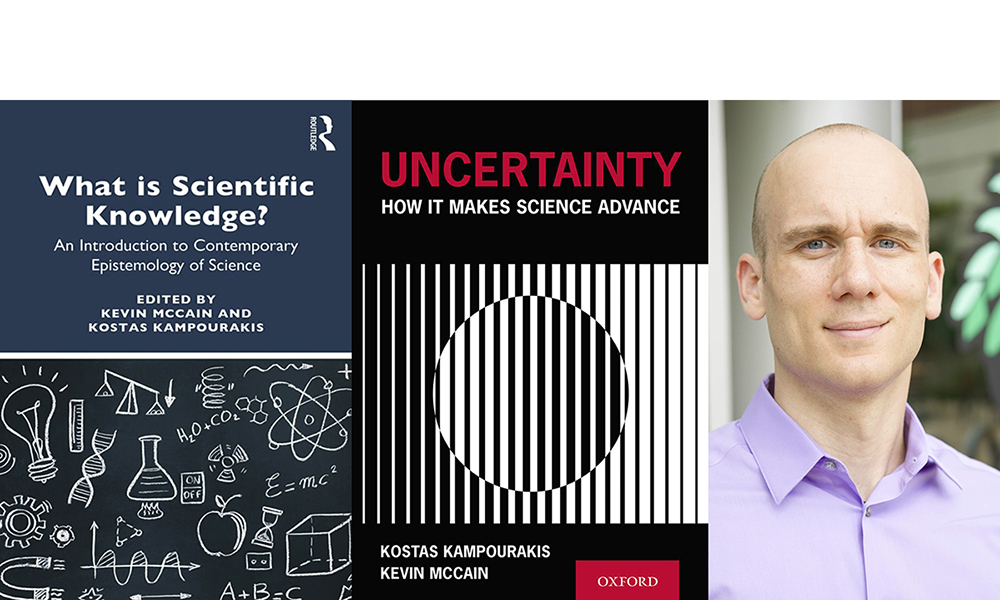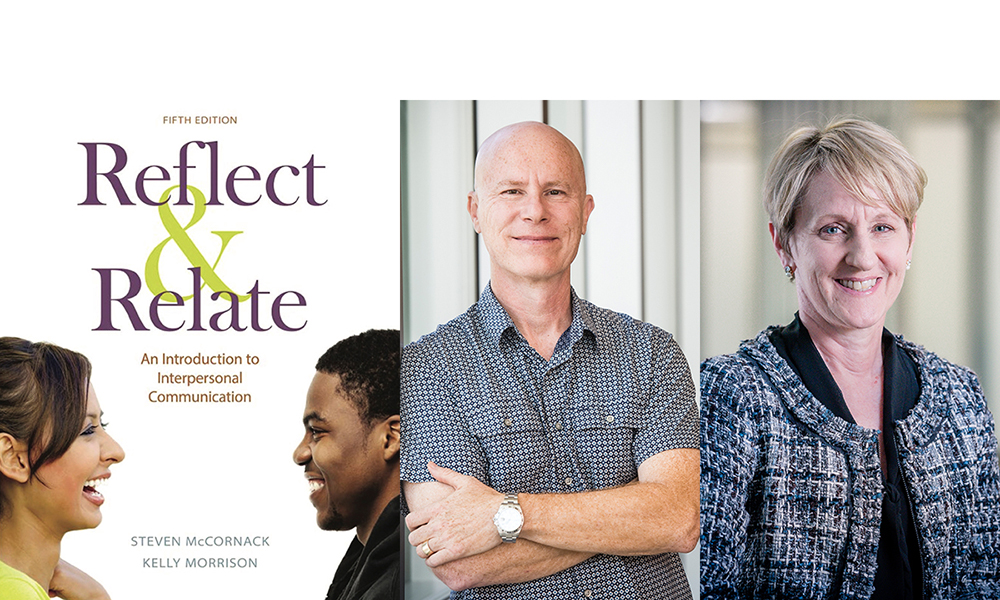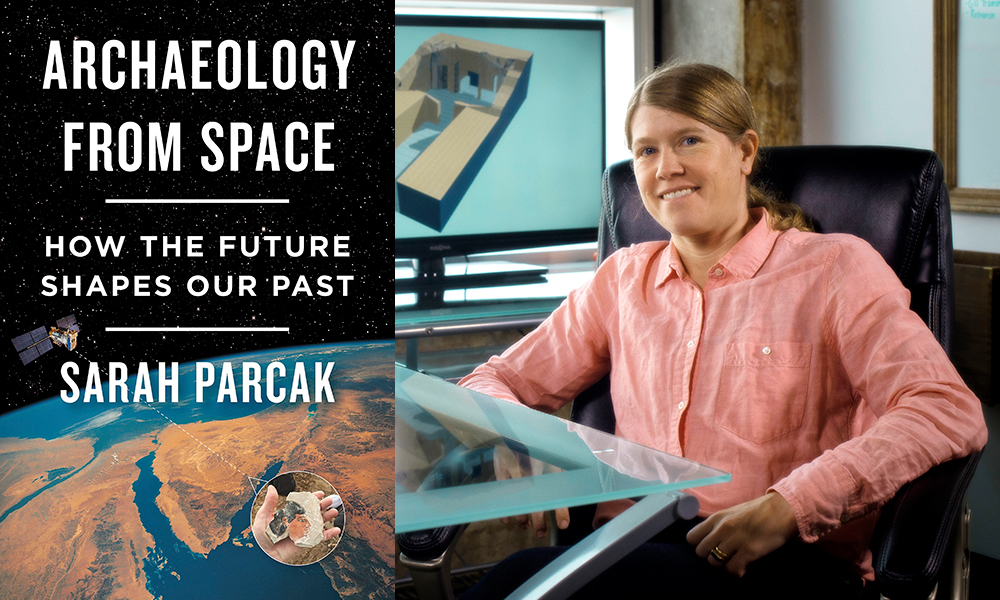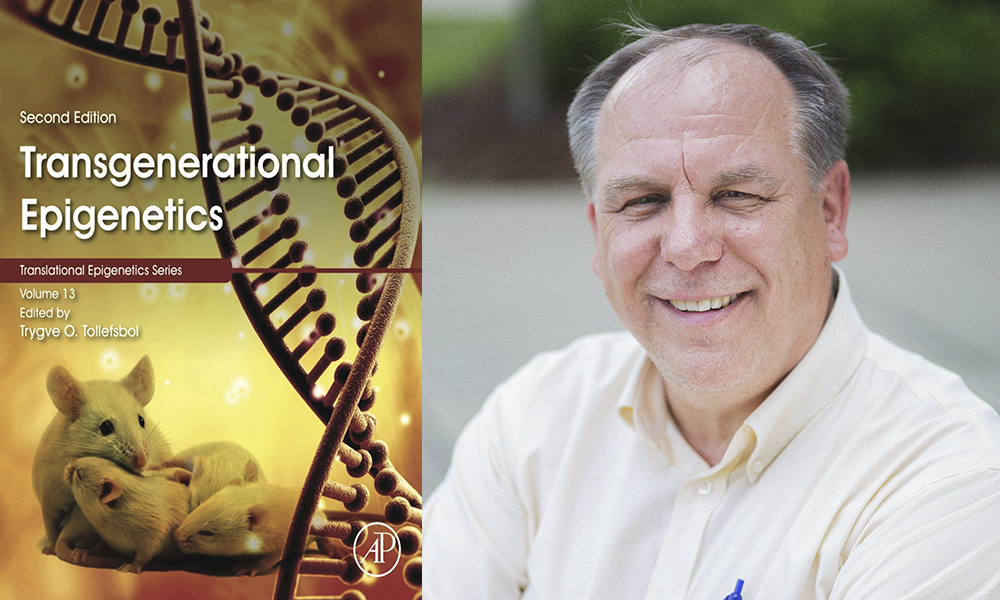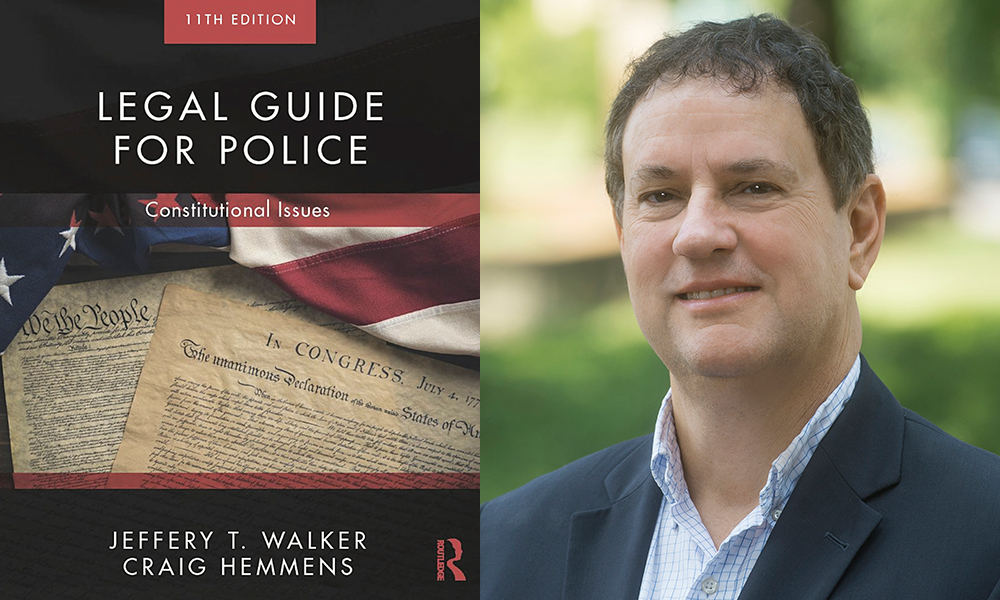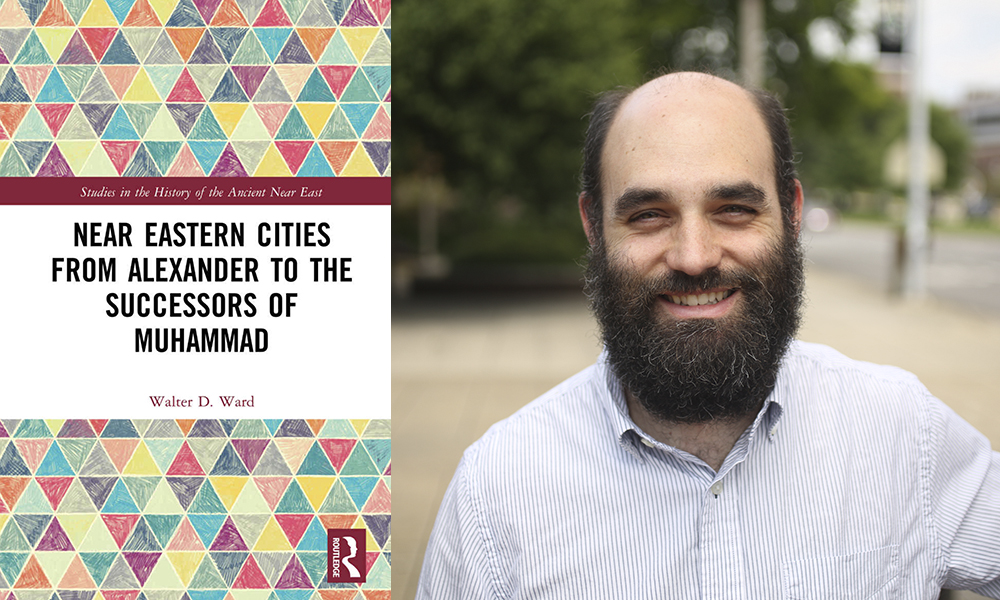Writing a book isn’t easy, but faculty in the College of Arts and Sciences produced a baker’s dozen. If you’ve found yourself with more time on your hands while social-distancing during the COVID-19 outbreak, pick up one of the 13 books authored by CAS faculty in 2019. Instructors from the departments of anthropology, biology, computer science, communication studies, criminal justice, English, history, philosophy, sociology and social work wrote everything from children’s books to texts about aging and the changing lifestyles of Americans, changes in societal understanding of gender and humorous anecdotes about scientists.
-
Patricia Drentea, Ph.D.
Professor, Department of Sociology “Families and Aging”
Published by Rowman & Littlefield Publishers, “Families and Aging” explores the life transitions that occur as individuals and families age. The text is written from the perspective of a sociologist, but it is interdisciplinary and can be used by people in many fields such as gerontology and family studies. -
Ragib Hasan, Ph.D.
Associate Professor, Department of Computer Science “Amazing Stories of Scientists 2”
In the second volume of “Amazing Stories of Scientists,” Hasan presents 18 more anecdotes of amazing inventions and discoveries and the brilliant scientists behind them, including Louis Pasteur, Galileo, Stephen Hawking, Norbert Wiener and Nicola Tesla. Hasan writes about serendipity in discoveries — such as the researcher who misheard the word “test” as “taste” and his mistake led to the artificial sweetener now known as Splenda. It also features female pioneering scientists, including Augusta Ada Lovelace — considered to be the first computer programmer from 1800s — and Admiral Grace Hopper, a major figure in 20th-century computing. -
Laurel Hitchcock, Ph.D.
Associate Professor, Department of Social Work “Teaching Social Work with Digital Technology”
Co-authored with Melanie Sage, Ph.D., and Nancy J. Smyth, Ph.D., from the University of Buffalo and published by the Council on Social Work Education, “Teaching Social Work with Digital Technology” helps educators make practical and ethical decisions about integrating technology into their social work programs. The text covers a range of essential topics, from understanding digital literacy skills to ethnical implications for technology in social work practices. -
George Liber, Ph.D.
Professor, Department of History “Total Wars and the Modern Ukraine” (Polish and Ukrainian translations)
Published by the University of Toronto Press, the Polish and Ukrainian translations of “Total Wars and the Making of Modern Ukraine” argues that the continuous violence of the world wars and the interwar years transformed the Ukrainian-speaking population of East Central Europe into self-conscious Ukrainians. A landmark study of the terrifying scope and consequences of mass violence in Europe’s bloodlands, the book reveals the entangled histories of Ukraine, the USSR, Germany and East Central Europe in the twentieth century. -
Kerry Madden-Lunsford, MFA
Associate Professor, Department of English “Ernestine’s Milky Way”
Illustrated by Emily Sutton and published by Schwartz & Wade, “Ernestine’s Milky Way” is a picture book set in the 1940s about a 5-year-old girl who embarks on a journey to deliver milk to her neighbors in the Great Smoky Mountains. With tons of flavor and a can-do spirit, the picture book celebrates American history and a plucky girl who knows that helping a family in need is worth the trouble. -
Kevin McCain, Ph.D.
Associate Professor, Department of Philosophy “Uncertainty: How It Makes Science Advance”
Co-authored with Kostas Kampourakis, Ph.D., from the University of Geneva and published by Oxford University Press, “Uncertainty: How It Makes Science Advance” argues that uncertainty is an inherent feature of science and does not devalue it. Uncertainty advances science because it motivates further research. Kampourakis discusses the scientific, psychological and philosophical aspects of uncertainty to explain what it really is, what kinds of problems it poses and why it makes science advance.
“What is Scientific Knowledge? An Introduction to Contemporary Epistemology of Science”
Published by Routledge, “What is Scientific Knowledge?” is a much-needed collection of introductory-level chapters on the epistemology — or the investigation of what distinguishes justified belief from opinion — of science. Co-edited with Kostas Kampourakis, Ph.D., the chapters are helpful introductions to the primary debates surrounding scientific knowledge. The variety and coverage in this volume make it a good choice for the primary text in courses on scientific knowledge. -
Steve McCornack, Ph.D.
Professor, Department of Communication Studies
Kelly Morrison, Ph.D.
Professor, Department of Communication Studies
“Reflect and Relate: An Introduction to Interpersonal Communication” (Fifth Edition)
Co-authored with department Professor Kelly Morrison, Ph.D., and published by Bedford/St.Martin’s, the fifth edition of “Reflect and Relate: An Introduction to Interpersonal Communication” helps students develop the interpersonal communication skills needed to face life’s challenges. It presents the latest theories, research and learning tools that make these concepts easy to understand and apply. Morrison and McCornack include an important new chapter on gender communication, which discusses what gender is, how we “do” gender, and how the society understanding of gender is evolving. Additionally, the culture chapter has been revised to emphasize the importance of embracing differences while dismantling cultural divisions. -
Sarah Parcak, Ph.D.
Professor, Department of Anthropology “Archaeology from Space: How the Future Shapes our Past”
Published by Henry Holt and Co., “Archaeology from Space: How the Future Shapes our Past” is a personal tour of the evolution, major discoveries and future potential of the field of satellite archaeology. From surprise advancements after the declassification of spy photography to a new map of the mythical Egyptian city of Tanis, Parcak shares her field’s biggest discoveries, and reveals why space archaeology is exciting and essential to the preservation of the world’s ancient treasures. -
Trygve Tollefsbol, Ph.D., D.O.
Professor, Department of Biology “Transgenerational Epigenetics: Second Edition”
“Transgenerational Epigenetics: Second Edition” offers an up-to-date, comprehensive analysis of the inheritance of epigenetic phenomena between generations with an emphasis on human disease relevance, drug discovery and next steps in clinical translation. Where evidence is sufficient, epigenetic clinical interventions are proposed that may help prevent or reduce the severity of disease before offspring are born. Published by Academic Press, this edition has been thoroughly revised in each disease area, featuring newly researched actors in epigenetic regulation. Therapeutic pathways in treating cancer and extending human longevity are also considered, as are current debates and future directions for research. -
Jeff Walker, Ph.D.
Professor and chair, Department of Criminal Justice “Legal Guide for Police: Constitutional Issues”
Co-authored with Craig Hemmens, Ph.D., a professor in the Department of Criminal Justice at Washington State University, “Legal Guide for Police: Constitutional Issues” is a resource for criminal justice students and law-enforcement officers. It brings them up to date on developments in the law of arrest, search and seizure, police authority to detain, police power and its limitations and more. Published by Routledge, the revised 11th edition provides the most current information and includes specific case examples. -
Walter Ward, Ph.D.
Associate Professor, Department of History “Near Eastern Cities from Alexander to the Successors of Muhammed”
Published by Routledge, “Near Eastern Cities from Alexander to the Successors of Muhammed” compares the evolution of several cities in the Near East from the time of Alexander the Great until the beginning of the Islamic Abbasid Dynasty. This volume examines both archaeological remains and literary sources to explain the diversity of imperial, cultural and religious influences on urban life. It offers several case students chosen from different regions of the Roman Near East, demonstrating that Greco-Roman and Islamic culture spread unevenly through these various cities, making it impossible to make broad generalizations. This text will be of particular interest to students of this period in the Ancient Near East and those studying ancient cities and everyday life.

